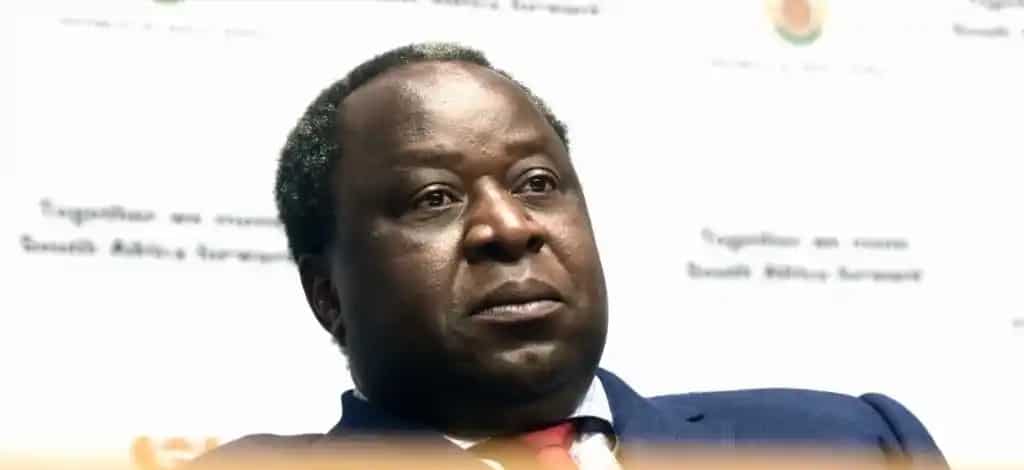Last updated on September 11th, 2021 at 02:43 pm
Finance Minister Tito Mboweni is a man who is not above using humour to get a sincere point across. He also does not believe that he should hold his tongue simply because his views are diametrically opposed to the views of institutions he represents.
As he prepares to submit his supplementary budget speech in Parliament next week, he does not appear to be shying away from his views, even if they are unpopular amongst his peers. This past week, his followers on Twitter got a glimpse of one such candid moment.
Mboweni shared an image of himself walking alone, in formal wear and functional shoes, and captioned it: “I don’t remember where this was captured. But if loneliness was a person, THIS!”
On Thursday afternoon, Mboweni told the National Council of Provinces during a virtual meeting that if South Africa did not change its spending behaviour, the country would fall into a sovereign debt crisis by 2024 and be forced to go to the International Monetary Fund for help.
The Reserve Bank forecasts that the SA economy will contract by as much as 7% this year. The South African Revenue Service said in May that the state’s revenues were likely to see a projected loss of R285 billion, relative to collections projected in the February budget.
However, while Mboweni is used to being the lone voice where it relates to policy, a number of experts believe that Cabinet and the African National Congress-led government are willing to put ideological differences aside and play nice with Mboweni.
Political analyst Somadoda Fikeni said the Covid-19 pandemic, which necessitated that Mboweni prepare and table a supplementary budget, has pushed leaders in government and the ANC to put narrow interests aside as they continue to plan their response to the outbreak.
“The first thing is, ideologically, there are those who have been opposed to him speaking his mind instead of taking a conservative position. The economic conditions brought on by Covid-19 have caused a shift on some of those matters,” said Fikeni.
Fikeni said the ANC believed a lot was riding on the outcomes of the government’s interventions and that Mboweni could be seen as a saviour or would be blamed, depending on the success of those interventions as they back his approach.
“If his interventions, in terms of the new budget, see the ANC through this challenge and the reforms work, it will save the ANC. If this does not work, they might even turn to blame him for what may have gone wrong,” he said.
On a broader economic level, Coleman said South Africa needed to execute on a growth plan that will map the way for sustainability and consolidation. Driving conditions for unlocking private sector investment and confidence is central to such a plan, he said.
“The politics of the alliance means any short-term austerity measures will likely be opposed. The minister is threading a needle through the constrained fiscal, economic and political space, which is extremely constrained,” he added.
(Fin24)

